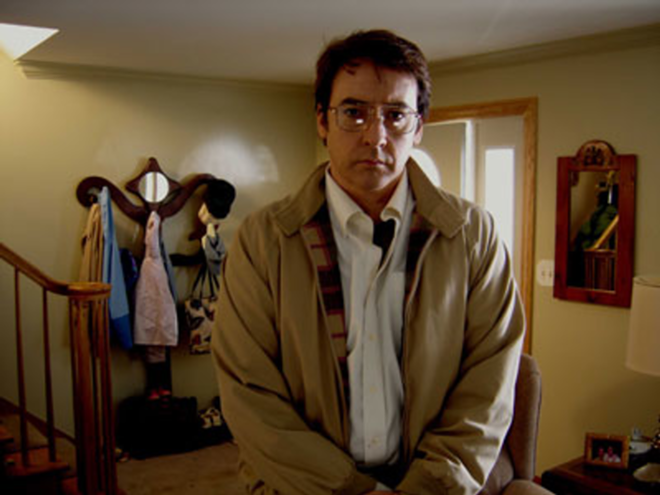It's normally not my policy to piss off drunk people, but at Sundance everyone is drunk so it's not like I could help it. Whatever the case, something had to be said, and as a former waitress myself, I figured I was in my place to defend a restaurant hostess who, according to some martini-swilling studio executives, was taking way too long to seat them.
"Obviously she has no idea who you are," the one said to the other.
"Obviously," the other said to the one.
"Give her a break," I intervened. "She's working hard."
And this right here was my mistake, because who am I to interrupt their conversation, even though they were having it loud enough to be heard from the ski lift passing overhead?
"Really, who the fuck are you?" one or the other asked me.
And I tried to think of something that would justify their respect and dissipate the heavy air of anger that flowed toward me like a redirected evacuation plan. I'm somebody, aren't I? I'm a writer whose book got bought by Paramount and who just entered into a partnership with a movie star to produce it for film or television. I'm a radio commentator and a syndicated columnist — that makes me important, right?
"I used to wait tables," I said. "Give her a break."
And with that, astoundingly, they did. Because here at Sundance , people pride themselves on their imperviousness to who you are. They replace the calculated cachet of being unimpressed with how important you are with the calculated cachet of being quite impressed with how authentic you are. The waitstaff at the very authentic Morning Ray Café, for example, used to wear T-shirts during the festival, the fronts of which blared, "Do You Have Any Idea Who I Am?" while the backs answered, "Good, We're Even." But now even those are passé, as the film-industry types all flocked to the place to prove their imperviousness to people who are unimpressed with them.
This is why it's hard for me to recognize famous people at Sundance. John Cusack, for one, could have flitted around me like a fruit bat before I finally recognized him. It's not that he doesn't look like a star — he does — it's just that half the reason stars are distinguishable from everyone else is because everyone else is impressed with them. So if you subtract that element, and put John Cusack in the middle of a bunch of people who are practiced at being unimpressed, then it's a little harder to notice him if you weren't expecting him to be there.
But everyone was expecting him to be there. His low-budget movie — Grace is Gone, about a recent widower who embarks on a road trip to Cypress Gardens with his two young daughters as part of his plan to gently break the news to them that their mother was just killed in Iraq — is a huge hit this year at Sundance.
"You have to see this movie," said my friend Julie Bookman, who runs the Margaret Mitchell House, one of the most venerated literary institutions in the South. But Julie was not here to impress these people with who she was. She was here to don a headset and hold the door at the Holiday Village Cinemas, working the festival as a volunteer like any other authentic art plebe who loves film. About five times while I was talking to her, I would point out a famous face as it passed by and say, "That's that guy! You know, the guy, who was in the thing!" and she would know.
At the end of her shift, she roped me into trying to crash the very controversial movie Hounddog, a dark story of abuse, violence and Elvis Presley obsession in the rural South. It was filmed in North Carolina and stars America's most darling of all Southern natives, the 12-year-old Dakota Fanning, whose character is violently raped in the course of the story. Even for Sundance it was a shocker, to have a 12-year-old play a graphic rape scene, and not just any 12-year-old, but Dakota Fanning. On the streets it was referred to as "The Dakota Fanning Rape Movie."
"You have to see this movie," Julie insisted.
"I have to see this movie," I insisted at the door when we got there, because the fact is I didn't have a ticket, and the showing was sold out. Julie, now, she had a ticket. As a volunteer at the festival, she got to go stand in the special roped-off section reserved for important people. I, on the other hand, with my measly press pass and my measly syndicated column and my measly book deal and my measly film deal, I was still standing there at the door when Julie breezed by me on her way inside. "I'll save you a seat if I can," she promised. Desperate, I turned to the Sundance volunteer working the door and resorted to the only ploy I had left.
"Do you have any idea who I am?" I pleaded. The volunteer smiled, shook her head, and quietly closed the door.


